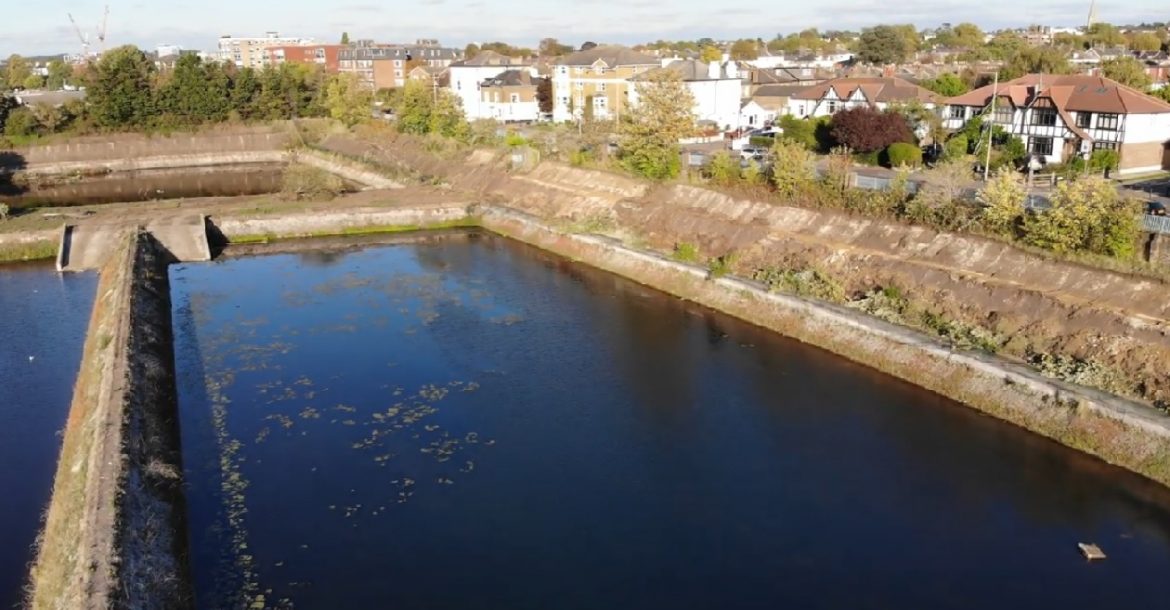An independent review of wildlife sites in Kingston has found that the Seething Wells Filter Beds are at risk of losing their designation as a site of nature conservation importance, due to a decline in ecological value.
The disused Victorian water pumping station in Surbiton is currently considered as a site that should be protected in the Council’s local plan, but this could change because of the loss of species-rich grassland.
Campaigners have been lobbying the Council to give the site greater protection amid claims that the owners, Cascina Ltd, have been deliberately destroying the habitat of the wildlife there, something the company denies.
In 2012, developer Hydro Properties applied to build a marina on the site with the consent of Cascina.
It would have contained 64 floating homes, an education and heritage centre, a riverside walk and a nature reserve, but the plans were rejected as inspectors said it would harm the character and appearance of the area.
Campaigners say that since then, Cascina has been destroying the habitats of wildlife, in preparation for a successful planning bid.
In a new petition, councillor Sharron Sumner claimed that the declining ecological value of the site was caused by the company’s treatment of it.
“Seething Wells Filter Beds have been identified as at risk of losing its status,” she said.
“This is a direct result of the Council turning a blind eye to the destruction of the site’s important habitats at the hands of its owners.
“They’ve stripped away topsoil, they’ve taken away the vegetation and now after a year and a half of periodically spraying it with everything from phosphates to even in some situations with swimming pool bleach they have killed off the majority of the vegetation.”
Michael Graham, planning director for Cascina’s partners Icon Planning and Environmental, said vegetation was being removed simply to preserve the structural integrity of the site.
“The vegetation was rooting into retaining walls [next to Portsmouth Road] and this caused a problem where if that was unchecked then it could undermine the structural integrity of them,” he said.
“The loss of flora has been as the result of good maintenance and not as the result of a desire to remove it.”
Sumner started the Save Seething Wells petition last year, calling on the Council to use statutory powers to protect the site.
It gained widespread support, receiving over 9,000 signatures and prompting Cascina to deny any wrongdoing in its treatment of the site.
“It would strongly dispute any accusation that there is no interest in biodiversity,” a spokesperson for the company told MyLondon.
Graham said: “We entirely acknowledge that habitat and flora are important things.
“It is also important that where you have structures as essential as the retaining walls between a major road like Portsmouth Road and the River Thames, that those walls need to be promptly maintained.”
Still of ecological value
Despite the review’s claim that the site is of declining value to wildlife, ecological consultant Alison Fure said it is of great importance to bats because of its location on a bend in the river Thames.
She said they cannot feed from the river Thames on nights when it is very windy, because it becomes too choppy for them so the calm water in the filter beds is perfect for them to feed on.
“You find that Daubenton’s [bat species] are really making good use of the filter beds then.
“Obviously, the site has changed but it is still very important for bats.”





